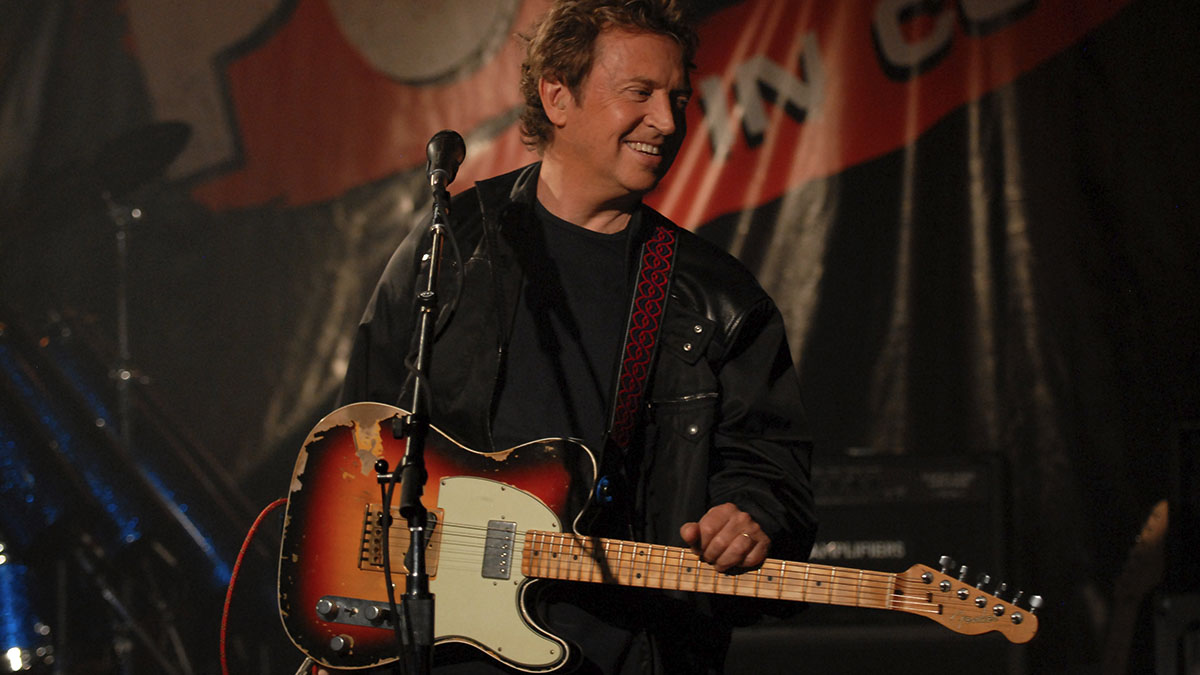“It’s like sawing off your own leg. Why would I do that? It’s the most important thing that ever happened to me”: Andy Summers explains why he'll never sell his “magical” modded Telecaster
Summers says he could not live without the 1963 Tele that was his go-to with The Police – but argues we shouldn't overhype vintage gear, because guitar makers are better than ever

You hear a lot about artists sending some of their stage-played electric guitars to auction, or opening up a shop on Reverb.com to clear some storage space at home, but one guitar you will never see on sale is Andy Summers’ legendary Fender Telecaster – because selling that, he says, would be like “sawing off your own leg”.
Summers was talking guitar with The Jeremy White Show, a conversation that revealed he almost never listens to music, that the dispute with Sting over the writing credits for Every Breath You Take continues, and how the guitar takes for The Police’s mega-hit were nearly ruined. But when White asks Summers about tone, there was no question it was the Telecaster that was front-and-centre of everything he was doing on record.
“This was a period when a lot of guys were ripping guitars apart, changing pickups, and rewiring,” says Summers. It became a very nerdy kind of thing and the little Telecaster was one of those where it had an in-built overdrive unit. It had a humbucker on the front by the neck, an incredible, I guess, overwound Fender pickup at the back. But it had a five-way switch and I could get this incredible out-of-phase tone on the fourth position, and I have never found another guitar that was as good as that, that did it like that one did it.
“It was sort of a magical guitar. Well, I’ve still got it. I’m not telling you where it is. [Laughs]”
“I’m not coming for it,” jokes White, and Summers says he is never short of offers. “You know, people go, ‘You sell your Tele?’ No way, man. That’s like sawing off your own leg. Why would I do that? It’s the most important thing that ever happened to me.”
Not that Summers is averse to selling some gear. He says he sold over 200 guitars, many of which were given to him. The Telecaster, however, is not for sale. Fans, of course, had the opportunity to buy own in 2007 when Fender released a Custom Shop replica of it.
Hamer even tried to make him a guitar that would retire it. Speaking to MusicRadar in 2018, about his very weird but very cool fretless Hamer double-cut, he said nothing came close.
Want all the hottest music and gear news, reviews, deals, features and more, direct to your inbox? Sign up here.
“[Hamer] were very nice guys – whenever I played in Chicago, there they’d be with all these guitars to give me,” said Summers. “But the trouble was they just couldn’t beat that Telecaster, because that guitar was so good. I tried playing it a few times but in truth I never felt comfortable… I always had to go back to the Tele. That was the supreme guitar in my eyes.”
But for all that Summers gives us the impression that he’ll be buried with that Telecaster, he says that, all things considered, he is not precious about guitars, nor about gear. They are “just tools”, and those who are getting overheated with the overheated vintage guitar market are missing a trick. Summers might own some nice vintage pieces but in his opinion, we should forget about the Golden Age of guitar making because they have never been better than now.
“I have to believe – and this is my philosophy – they are getting made better than they used to,” he says. “Just because it says 1958, yeah, it may have something, because they tended to overwind the pickups. I actually like to think that all that knowledge, of all those years of guitar making, building guitar pickups, has gotten better, and the guys really know what they are doing. Some really interesting guitars are being made these days.”
You can subscribe to the Jeremy White Show wherever you get your podcasts and check out his conversation with Summers above.
Jonathan Horsley has been writing about guitars and guitar culture since 2005, playing them since 1990, and regularly contributes to MusicRadar, Total Guitar and Guitar World. He uses Jazz III nylon picks, 10s during the week, 9s at the weekend, and shamefully still struggles with rhythm figure one of Van Halen’s Panama.
